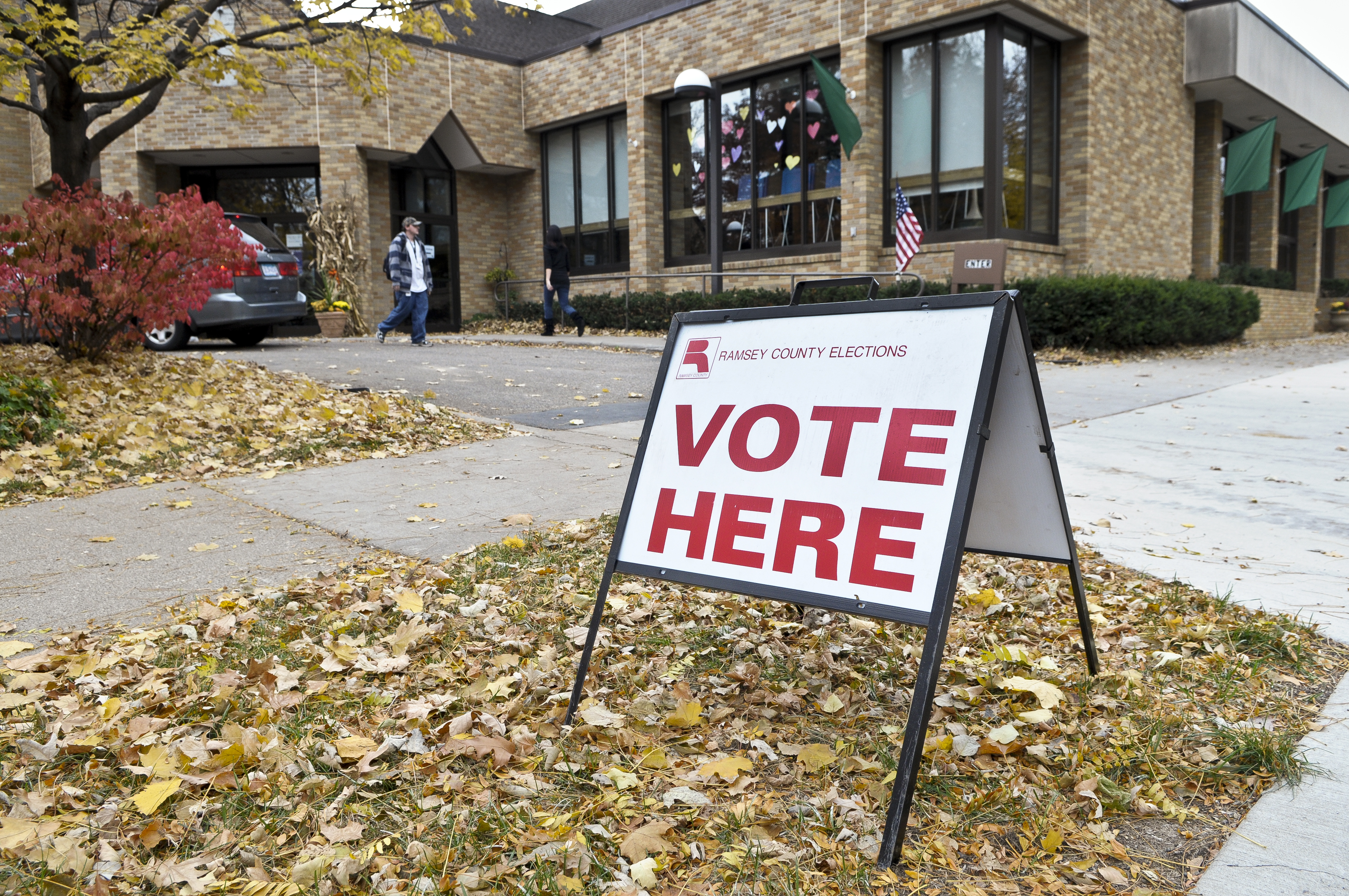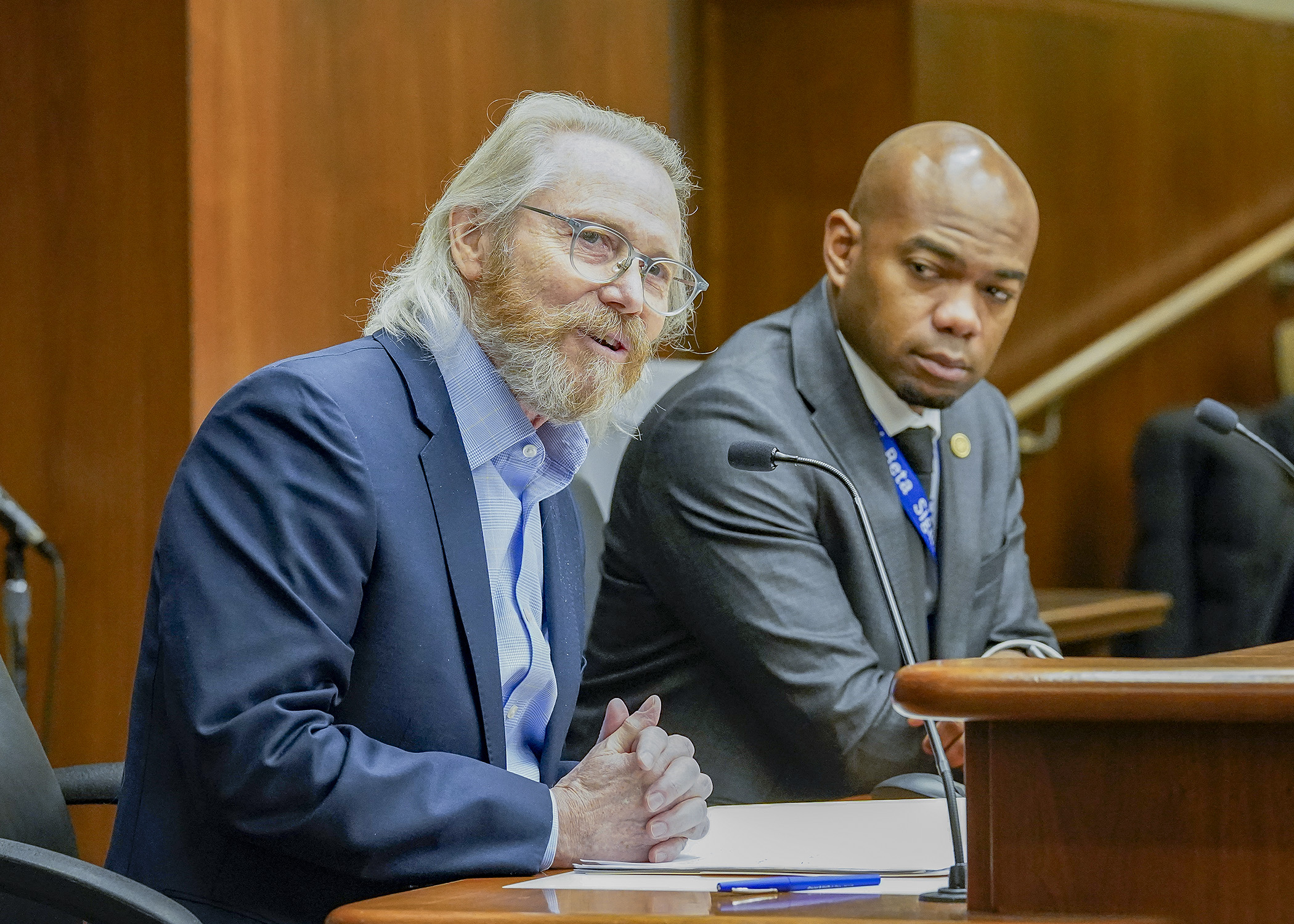House elections panel advances bill to restore ex-offender voting rights

If you are incarcerated you cannot vote, but you can cast a ballot if you’re not behind bars.
That is the simple premise of a bill supporters say would make former inmates feel more like part of society.
On a split-voice vote, the House Elections Finance and Policy Committee approved HF28 Wednesday and sent it to the House Public Safety Finance and Policy Committee.
Sponsored by Rep. Cedrick Frazier (DFL-New Hope), and co-sponsored by 34 DFLers, the bill would restore the right to vote to individuals convicted of a felony once they are released from incarceration, rather than their completion of a sentence, including probation. Written notice and a voter registration application would be provided by the Corrections Department to an individual upon release from incarceration.
Twenty-one states have what this bill seeks.
Currently, Minnesota is one of at least 16 states where any probation, parole or supervised release must be completed before a person’s voting right is restored. Policies vary across other states.
 Former Rep. Raymond Dehn — an ex-felon himself — testifies before the House elections committee Jan. 11 in support of a bill sponsored by Rep. Cedrick Frazier, right, to restore ex-convict voting rights. (Photo by Andrew VonBank)
Former Rep. Raymond Dehn — an ex-felon himself — testifies before the House elections committee Jan. 11 in support of a bill sponsored by Rep. Cedrick Frazier, right, to restore ex-convict voting rights. (Photo by Andrew VonBank)“We must ask ourselves if disenfranchising offenders after the justice system has concluded that they should be back working in the community and rebuilding their lives serves any positive criminal justice outcome,” Frazier said. “… We have a representative democracy, but currently in our state, our government cannot truly be reflective and representative of all its people if certain voices continue to be shut out of the process.”
Proponents estimate 50,000 Minnesotans would be affected by the change — many of whom, supporters say, think they’ll never get to vote again because of their conviction.
“These are folks who someone — a judge, a jury — has determined is good enough, safe enough, worthy enough, a sound enough risk, to be among us every day, putting their lives together (by) working, raising a family, integrating back into the community,” said Secretary of State Steve Simon.
“(Now) it makes Election Day feel like a punishment even though they’ve completely served their time. They’re workers, they’re producing taxable income for us, but they don’t have the simple ability of participating in society as a full citizen,” added Wintana Melekin, a St. Paul business owner.
No testifiers, nor members, spoke in opposition to the bill.
Letters of support were also submitted by, among others, the Minnesota County Attorneys Association, League of Minnesota Cities and Association of Minnesota Counties, African American Leadership Forum, Common Cause and AFSCME Council 5.
Related Articles
Search Session Daily
Advanced Search OptionsPriority Dailies
Speaker Emerita Melissa Hortman, husband killed in attack
By HPIS Staff House Speaker Emerita Melissa Hortman (DFL-Brooklyn Park) and her husband, Mark, were fatally shot in their home early Saturday morning.
Gov. Tim Walz announced the news dur...
House Speaker Emerita Melissa Hortman (DFL-Brooklyn Park) and her husband, Mark, were fatally shot in their home early Saturday morning.
Gov. Tim Walz announced the news dur...
Lawmakers deliver budget bills to governor's desk in one-day special session
By Mike Cook About that talk of needing all 21 hours left in a legislative day to complete a special session?
House members were more than up to the challenge Monday. Beginning at 10 a.m...
About that talk of needing all 21 hours left in a legislative day to complete a special session?
House members were more than up to the challenge Monday. Beginning at 10 a.m...